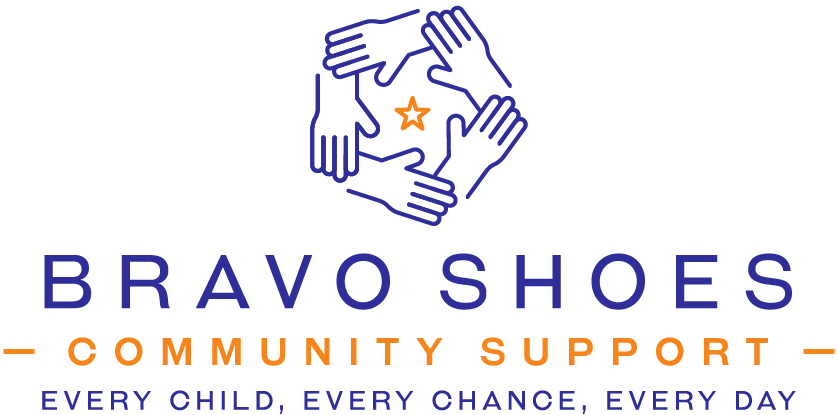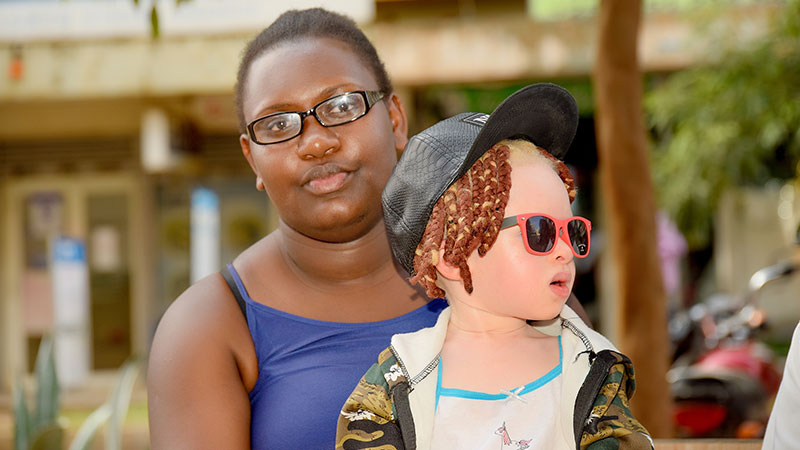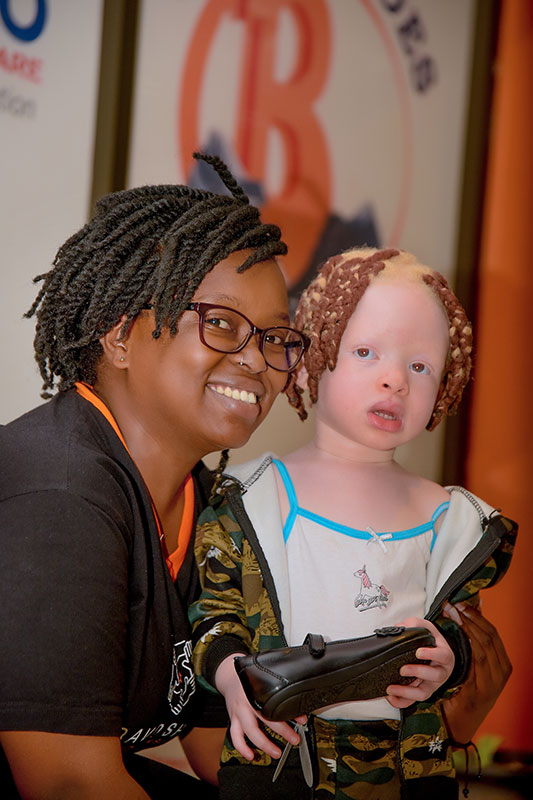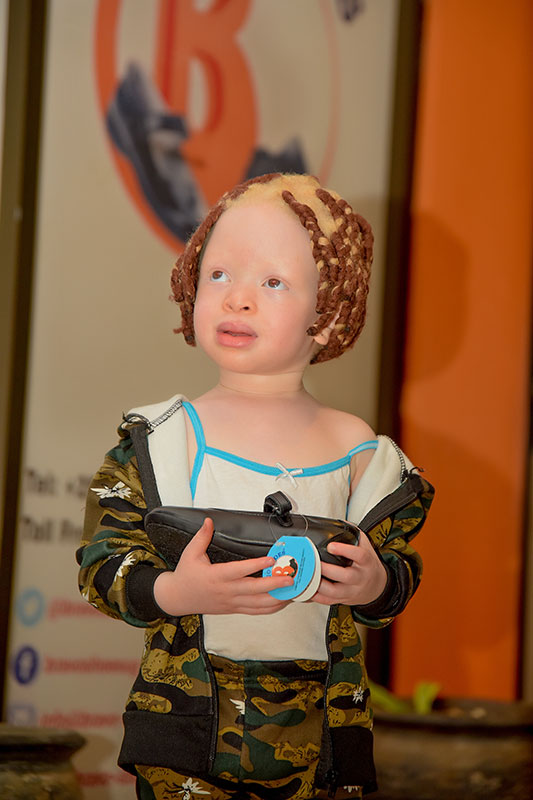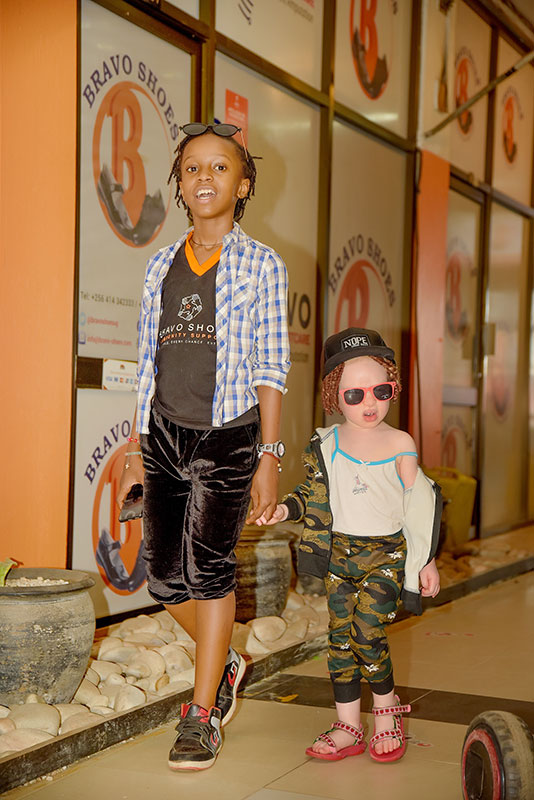She risked turning out for an interview on the hot bright day, she defied the sunny rays which could command defect on her shining brightening skin.
That day, she took the streets of Kampala by storm like a young Angelina Jolie at Disney Junior in the company of her mother to come and tell us her story.
Daniella Namukasa Kigoonya is soon making 3 years in October but is determined to bend all the odds against albinism. Daniella is already a star in the making, clad in a camouflaged cloth, a black cap, and dark shades.
When she is walking on the streets of Kampala, she keeps admiring strange things the street has offered her to see, at times she can dance to give her mother great company and many admirers.

On June 13th, it will be International Albinism Awareness Day, a day Daniella is living to celebrate with the rest of the world to celebrate the human rights of persons with albinism worldwide under the theme: Inclusion is Strength.
According to the United Nations (UN), the theme builds on last year’s theme of ensuring the inclusion of the voices of persons with albinism in all sectors of life.
It emphasizes the importance of including a diversity of groups from within and outside the albinism community.
Albinism is a rare, non-contagious, genetically inherited difference present at birth. It is a genetic condition inherited from both parents that occurs worldwide, regardless of ethnicity or gender.
Her Mother Sarah Katasi a staff at Infectious Disease Institute (IDI) Wakiso Health Center IV told us how she reacted after finding out that she had an albino baby girl.
“October 2020, it was a normal pregnancy just like any other, I delivered Daniella through Ceaserian but one thing I remember on the day, after giving birth the surgeon on seeing her was like wow.. and I was like why wow. The surgeon asked if we had any albinism condition in my family, he also called Daniella’s father on the same,” she said.
However, Katasi says no one was aware of that state in both families and everyone was surprised, and concoctions started to come in and others attributed the cause to the foods she’s eaten when she was pregnant.
Katasi encouraged mothers not to give up on their children if they give birth to children with any special condition like albinism.
She explained that Daniella is always indoors because of the strong sunshine and if she risks being outside, her skin gets affected. She is always indoors, and her eyes are protected by sunglasses but sometimes being young, she wants to pray with her friends.
Katasi says that she accepted her girl the way she is and commended the organization that takes care of her and that has really helped her. She is a special creature with hidden talents.
“It is so sad that the largest percentage of fathers abandon their children because of what they are and I encourage parents to accept him the way they are,” she said
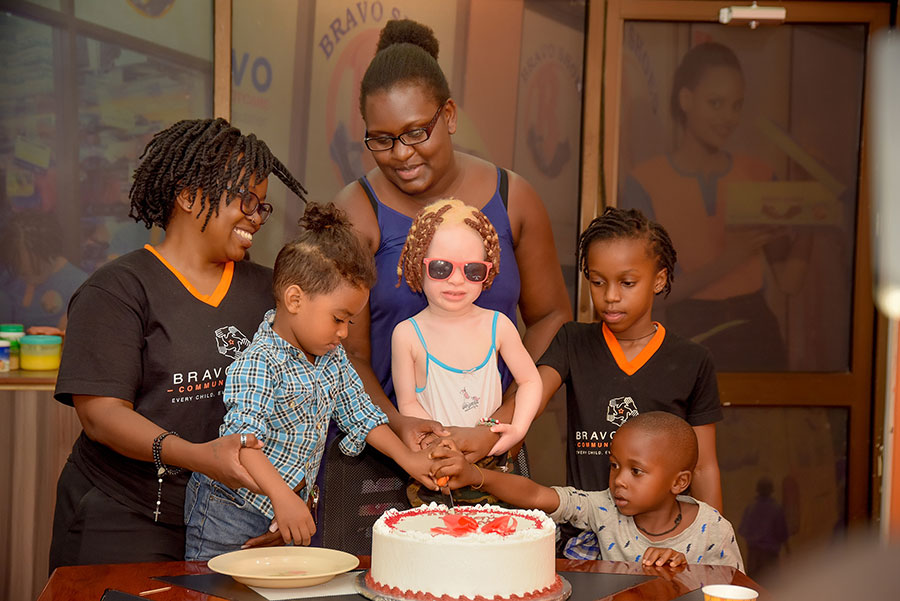
“The challenge I face is stigma and discrimination, it feels so sad if a fellow mother discriminates against her, they give her nicknames from the people who are mothers too. I see something big in her, right now she can easily communicate, she is starting school next year and I just hope she is not discriminated in school,” she says.
The common lack of melanin pigment in the hair, skin, and eyes of people with albinism causes vulnerability to sun exposure, which can lead to skin cancer and severe visual impairment.
According to the UN, in as many as 1 in 5,000 people in Sub-Saharan Africa and 1 in 20,000 people in Europe and North America have albinism.
The Ugandan government’s recognition of albinism as a disability in 2020, was seen as a boost to the rights of the community and the country. It is estimated more than 20,000 persons live with albinism in Uganda.
In some countries, people with albinism suffer discrimination, poverty, stigma, violence, and even killings. In some countries, women who give birth to children with albinism are repudiated by their husbands, and their children are abandoned or the victims of infanticide.
There are stereotypes like albinos they don’t die but just disappear and have magical powers to heal HIV/ AIDS or make other people wealthy.
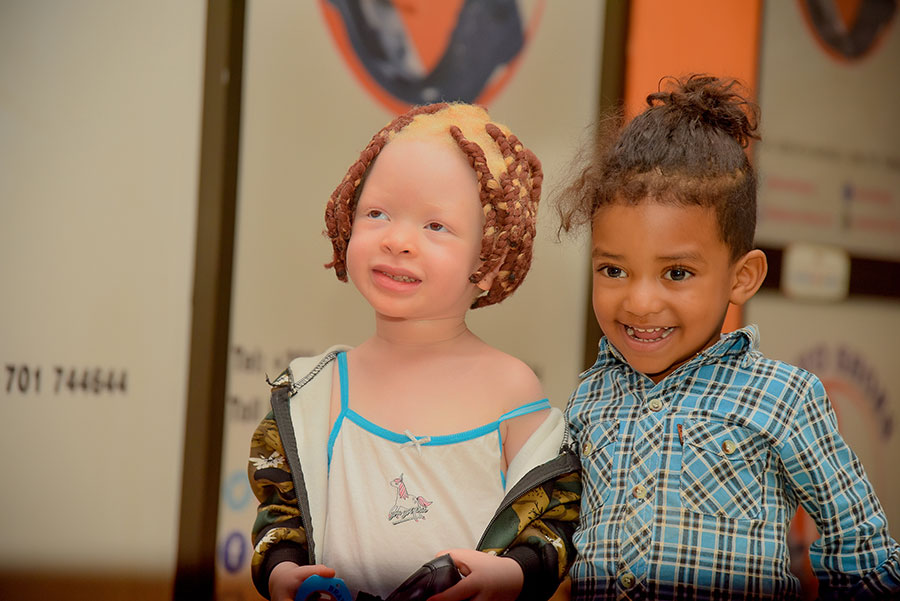
In the East African region, Tanzania has a dark relationship with albinism. Witch doctors hunt those suffering from the condition for their body parts, which are used in potions to bring good luck and wealth. Victims can be kidnapped and then dismembered by hired killers, or even sold by unscrupulous family members, with body parts fetching up to ($75,000).
The UN estimates around 80 people with albinism in Tanzania have been murdered since 2000.
But these brutal attacks are not the greatest threat to people with albinism in Africa. They face a slower death from a disease known as the “silent killer”. Without melanin to protect them, they have a much higher risk of getting skin cancer.
